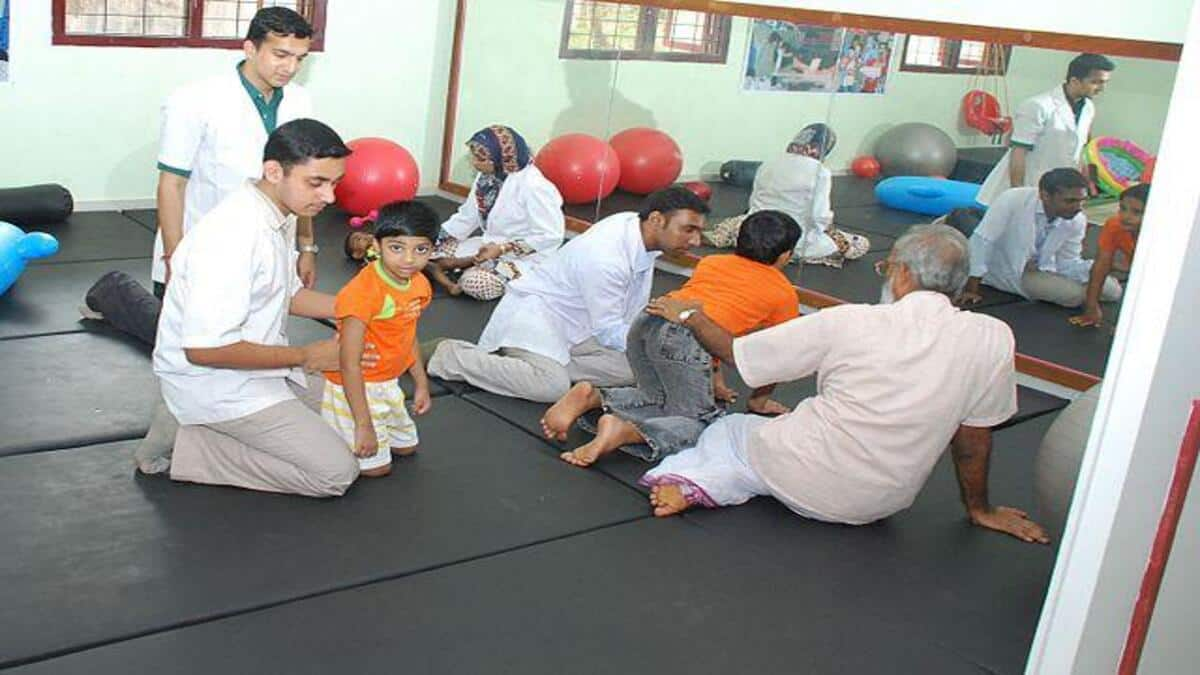NCAHP’s physiotherapy curriculum ‘discriminatory’, uses outdated and derogatory terms: Doctors
Mrunal Pandharinath Jadhav | May 8, 2025 | 01:07 PM IST | 2 mins read
Doctors with Disabilities say BPT, MPT curriculum excludes students otherwise eligible for MBBS, MD, or MS programmes; undermines RPDA 2016, Supreme Court rulings

NEW DELHI: In an appeal to the National Commission for Allied and Healthcare Professions (NCAHP), a national collective of healthcare professionals with disabilities has raised concerns over discriminatory provisions in the recently released National Physiotherapy Curriculum for Bachelor of Physiotherapy (BPT) and Master of Physiotherapy (MPT) courses set to be implemented from the 2026-27 academic year.
In the letter to NCAHP, Dr Satendra Singh, who leads Doctors with Disabilities: Agents of Change, criticised the curriculum for barring students with specific disabilities from pursuing the BPT and MPT programmes, despite those same students being eligible for medical degrees.
The group also highlighted certain provisions in the curriculum that appear to “undermine” the fundamental intent of the Rights of Persons with Disabilities Act (RPDA), 2016, and certain recent Supreme Court directives.
“In its present form, the curriculum risks reinforcing systemic exclusion rather than transforming the profession toward equity and inclusion,” the letter to NCAHP said.
Letter to NCAHP: Concerns raised
The NCAHP’s BPT curriculum guidelines exclude students with more than 50% lower limb disability or non-dominant upper limb involvement “even though these individuals are otherwise eligible for MBBS, MD, or MS programs”, Dr Singh said in his letter. The rules also bar students with more than 50% spinal involvement and those with more than 50% impairment due to dyslexia, blood disorders, or chronic neurological conditions.
“These restrictions are especially indefensible when students with similar or more severe disabilities have been deemed eligible for far more rigorous medical programs. These guidelines are in clear violation of recent Supreme Court judgments…,” the letter adds.
The letter points to certain Supreme Court judgments, including cases that allowed candidates with more than 88% muscular dystrophy and 40% speech impairment to pursue medical education, making the physiotherapy restrictions particularly difficult to justify.
Also read Centre rolls out competency-based curriculum for 10 allied and healthcare professions
Additionally, the curriculum reserves academic or research roles only for “physically and visually” disabled individuals, excluding other disability categories legally entitled to 4% reservation.
NCAHP curriculum: ‘Outdated’ terminology
Beyond admission barriers, the group also identified other concerning issues such as use of outdated terminology like “handicapped”, "mentally subnormal” or “retardation”; lack of disability rights-based competencies; and the requirement of physical fitness certificates that “to confirm the absence of any physical disability”.
The letter also pointed to the narrow 15-day consultation window provided for feedback, which violates the minimum 30-day requirement for stakeholder engagement for such significant policies.
Also read Now, NEET exam, 1-year internship must for physiotherapy: Allied health sciences get major revamp
Doctors with Disabilities has offered to collaborate with the NCAHP to revise the physiotherapy curriculum before its 2026 implementation. “These changes are not just legally required — they are ethically imperative. They will help future physiotherapists and allied health professionals deliver care that is compassionate, inclusive, and grounded in the values of justice and dignity,” the letter said.
Follow us for the latest education news on colleges and universities, admission, courses, exams, research, education policies, study abroad and more..
To get in touch, write to us at news@careers360.com.
Next Story
]How was NEET 2025 exam? Biometric failures, delays threaten students’ MBBS dreams
NEET UG 2025: Despite the intense security arrangements, several students and parents reported delays and mismanagement. NEET answer key 2025 will be out soon and the NEET results 2025 will be declared on June 14 at neet.nta.nic.in.
Anu Parthiban